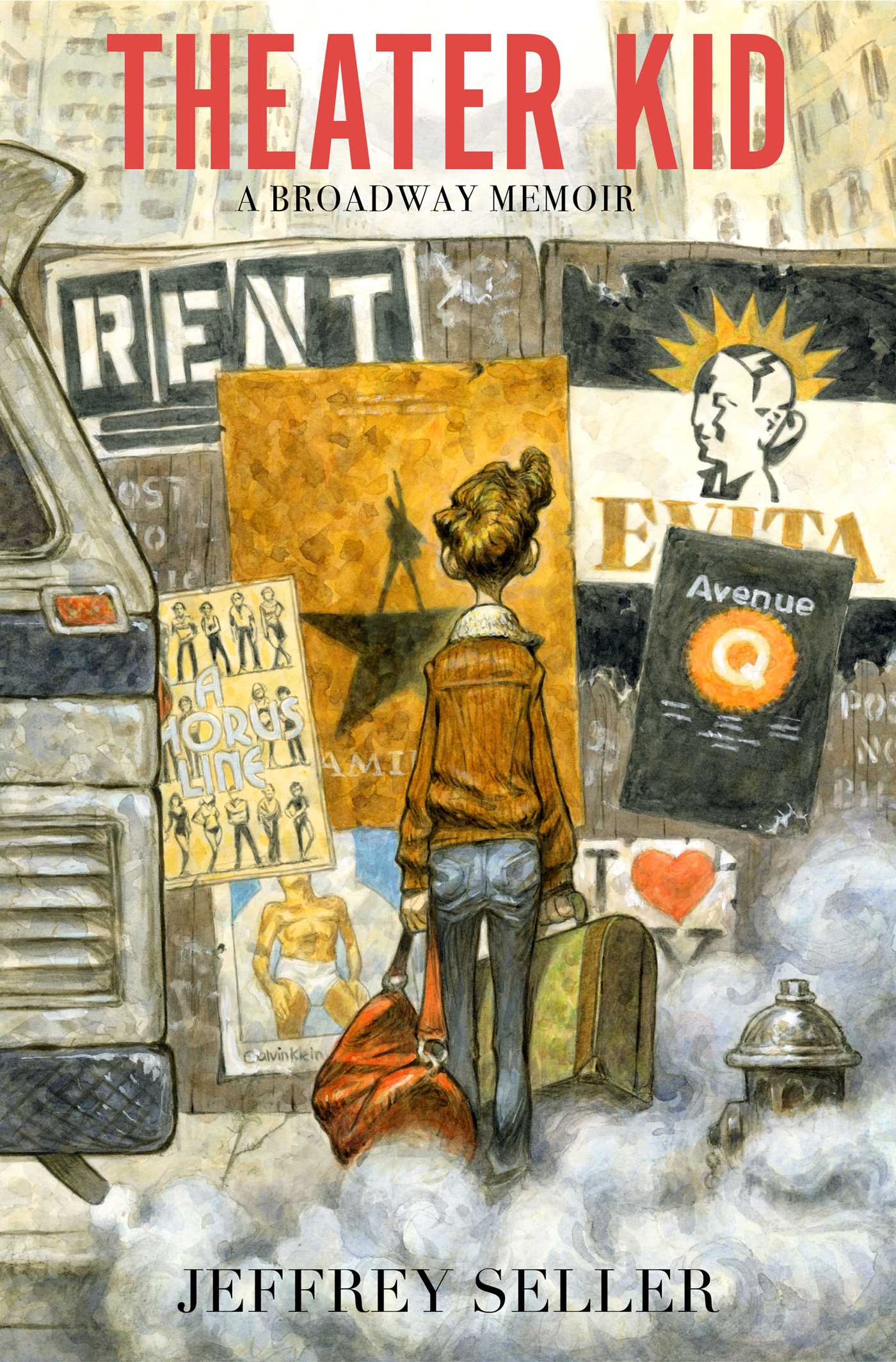THEATER KID
By Brian Scott Lipton
The so-called “rags to riches” story endures as one of America’s most popular categories of reading material, strengthening our long-held belief that with hard work, a little luck, and perhaps some sort of special motivation, anyone in our country can accomplish their dream, obstacles be damned. These books serve as much-needed inspiration for those young enough to still be chasing fame or fortune, as well as insight into the lives of public figures whose coming-of-age tales have yet to be told.
Without question, Theater Kid (Simon & Schuster) succeeds spectacularly on both counts, detailing more than 50 years in the life of Tony Award-winning Broadway producer Jeffrey Seller–best known (at least in theatrical circles) as the man who brought us Rent, followed by Avenue Q, In the Heights, and, perhaps most importantly, “Hamilton.”
Indeed, much of this incredibly sincere yet open memoir focuses on Seller’s decades-long career, which began right after he graduated from college and started with a lengthy stint working in the office of colorful producers Barry and Fran Weissler (who would eventually strike mega-gold with the revival of Chicago), before placing Seller on some circuitous path.
As it goes on for approximately 350 pages, Theater Kid continues through Seller’s deep friendship with the late composer/lyricist Jonathan Larson–which led to Seller producing Rent–as well as his legendary partnership with fellow producer Kevin McCollum, before finally branching out his own (where his greatest collaborator and friend becomes a young Latino writer named Lin-Manuel Miranda). While the book can sometimes feel a bit too “inside baseball” for those not in the industry, it is never less than informative, honest and entertaining

But for many readers, the most identifiable sections of the book involve Seller’s complicated childhood and coming to terms with being a gay man (although those readers expecting verbal pornography will be disappointed in Seller’s rather tame descriptions of his sex life).
Growing up relatively poor in Oak Park, Michigan–a neighborhood he none-too-affectionally describes as “Cardboard Village”–Seller has the cards stacked against him. His father Mark, emotionally and physically damaged after a car accident–is a hot-tempered, irresponsible, sometimes loving father who barely ekes out a living (first as a process server, then briefly as a circus clown!) and who engages in a love-hate relationship with Seller’s hard-working mom, Caroline. Jeffrey often feels stuck in the middle of their endless battles, getting little support from his depressed older sister Laurie, and eventually becomes the protector of his much younger brother, Aaron.
It doesn’t help matter that Jeffrey is adopted–something he always knows–and is not only physically different from his parents but feels emotionally different. Eventually, he realizes some of that distance is connected to his sexuality, and while his parents don’t disown him or do anything similarly drastic, his attraction to men does become a further barrier between Jeffrey and his mother.
As for those men, Jeffrey is a so-called “late bloomer,” who doesn’t even experiment with neighborhood boys. He does eventually befriend, move in with, and fall madly in love with a fellow Detroiter named Andrew Lippa (Yes, that Andrew Lippa, who would write such musicals as “John & Jen” and “The Wild Party.”) While the pair’s initial months together are romantic and seemingly steamy, the relationship falters as their goals and feelings change; Andrew (who will remain a lifelong friend) wants to explore other options, while Jeffrey is practically ready to tie to the knot. It’s a scenario most gay readers of the book can probably identify with.
The same might said of one short scenario that lingers most vividly: Seller spending a brief time during his 30th birthday involved in a “three-way” of sorts in a gym steam room, before heading home to celebrate this major milestone completely alone.
Perhaps understandably (presumably for privacy reasons), Seller doesn’t devote much space to his life with his former partner, Josh Lehrer, with whom he raised two children, and one wishes he had given us a closer look into that relationship and the challenges of fatherhood. (His most recent partner, Yuval Sharon, is mentioned only in the book’s acknowledgments).
But as Hamilton asks repeatedly, “who gets to tell your story?” In Jeffrey Seller’s case, he tells his own as he wants to – something one must respect and hopefully enjoy!
Editor’s note: The star-studded audiobook of “Theater Kid” (also Simon & Schuster) is being read by Seller, with appearances by Annaleigh Ashford, Kyle Beltran, Steven Boyer, Danny Burstein, Darren Criss, Jesse Tyler Ferguson, Sas Goldberg, Renée Elise Goldsberry, Lindsay Mendez, Lin-Manuel Miranda, Alex Newell, Andrew Rannells, Conrad Ricamora, Jonathan Marc Sherman, and Christopher Sieber. The program also features original music composed by Tony and Pulitzer Prize Award winner Tom Kitt.









More Stories
Dancing in Hard Times
Breaking Access Barriers: Connecticut’s Bold New Step Toward Mental Health Parity
Three Gay Guys Talking Cars